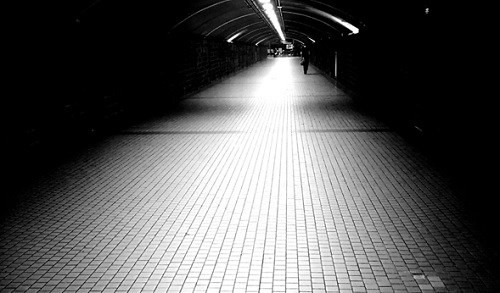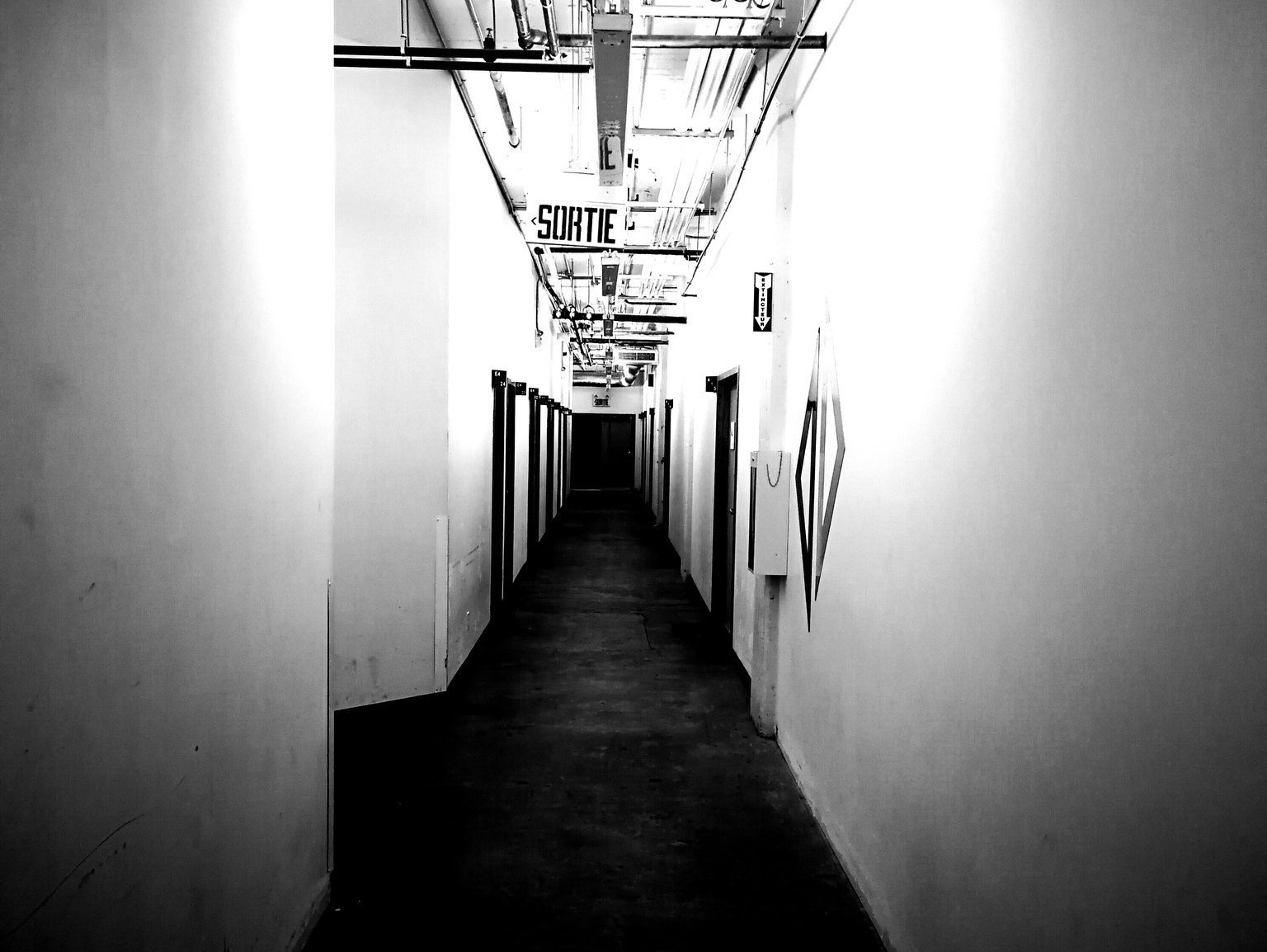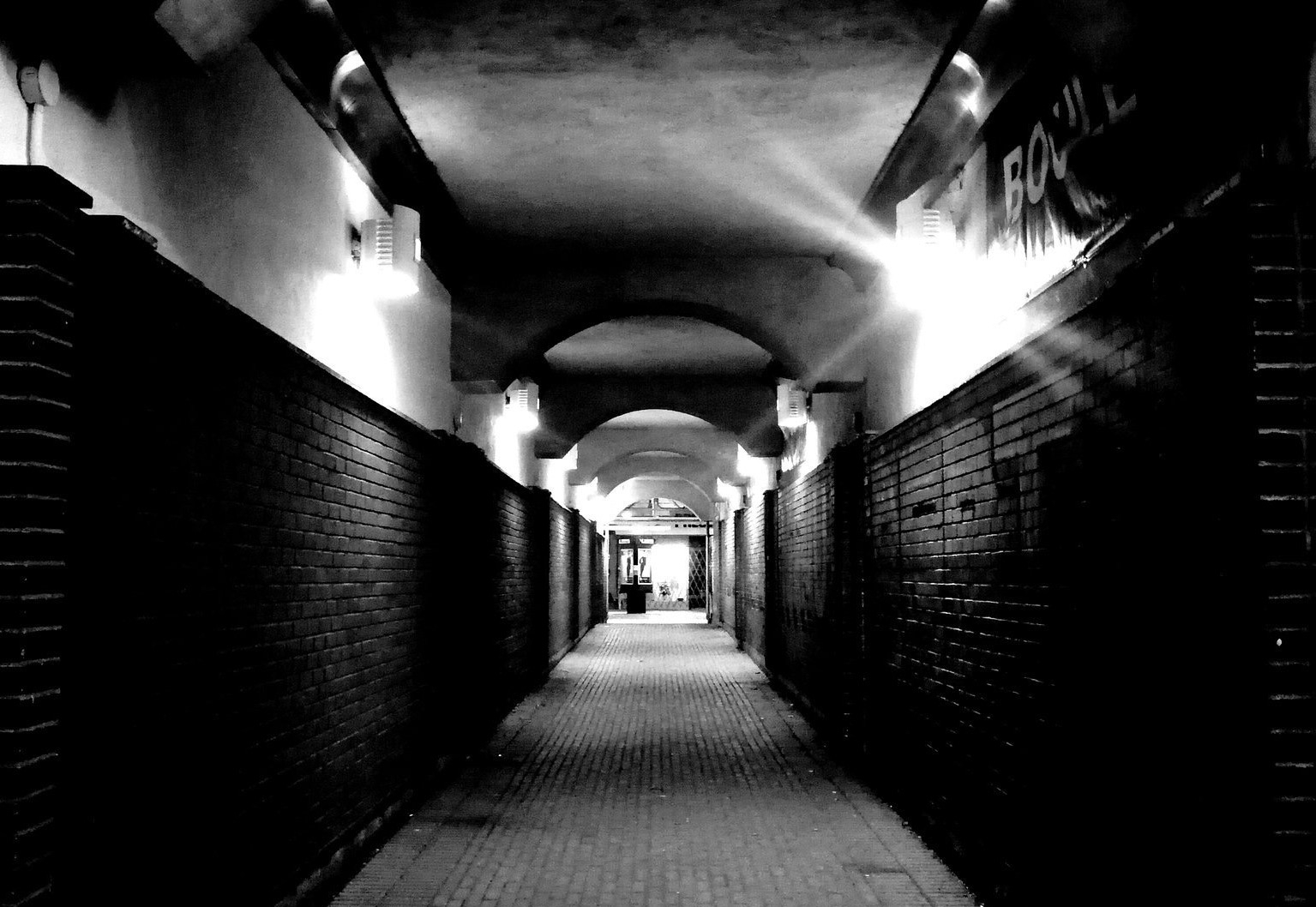Guerrilla Concepts
Writing to be Unwritten
(The Hour After)
Objects/Spaces: The Garden; The Mirror; The Crack
(Anguish; Asphyxiation; Burning/Drowning)
Elements/Moods: Dissimulation; Vulnerability; Seduction
(Memories; Dreams; Sleep paralysis)
Tactics/Rituals: Outsider dialects; Hypnosis
(Echos; Chants; Spells; Curses; Counter-Revelations)
*
My veins are black and perfect, my veins are absolution and I am waiting for the overdose and the annunciation so I can enter in without forgiveness.
I reach further and my body's slick with it, the scent of paradise ripe and rotting and precious, some sacred thing spilled out so I can taste it. I'm inside it now.
I break the surface and I lean in, my mouth wet, the capillaries inside you bright and desperate and now I've got your pulse between my teeth. I think about the end of this.

To enter the vampiric asphyxiating dreamscapes of [x]'s world requires the ability to open up and expose oneself to all the lacerations that the text demands. One must relearn to read here, for her counter-prophetic incantations are spoken in the irresistible hypnotic tones of countless/timeless monsters. To name them – from nymphs to sorceresses to succubi – would be to take certain risks. [x] herself says, “I stay nameless because my pseudonyms reveal too much.”
This is the writing of radical vulnerability – “this was a loveletter, once” – where the nameless author morphs into space, into memory, suffusing with an atmosphere of total loss, until affliction itself becomes the creative force etching out the cavernous architecture of anguish throughout the text. Here the fates of reader and writer unfold together in a lethal dance of seduction, for they follow the same irreversible laws, the same tortuous pathways.
The warning sign, though, is at the door: “The ink here is less a means and more a threat,” [x] writes from the start. “It cuts close because the agony isn't measured in the passage but the permanence.” At the same time, only loss is permanent, the text erasing and undermining itself at every turn, in a strange, delirious stream of writing and unwriting.

3:AM Magazine: Much of the prosodic stream of (un)consciousness found on your literary blog, EVEN UNTO, gives the impression of a space between realms, between an Abrahamic heaven and hell, between drowning in water and being burned at the stake, between a daydream and a nightmare. Are you its mirror or its maker? Where do you find yourself within these reality shifts that you've authored?
[x]: The moment is its own reflection, it's the simulacra that only recognizes itself in retrospect. That knowing requires its own sort of dialect, something that can fold in on itself while still being less, as the first-person says too much and by doing so says none of it. This is the kind of autobiographical violence that's required when gunning for abyss, when the mirror is what's witnessed and what is, when it becomes a means and a threat and way of breathing when you weren't meant for it. The mirror is everything because it's everything I don't give.
3:AM: So then, as someone who inhabits these rare chambers and corridors at the peripheries of literature and authorship, does anonymity relate to one who writes in secrecy or in exile?
[x]: Exile is the distance that silence gives, it's the space between, again. Exile holds what's withheld close. We're defined by our exiles and exhalations far more than by our secrets. What's hidden is holy, yes, but so is what's lost.
The difficulty comes in thinking that secrets are somehow incomplete. That they require translation from obscure to safely known, a way to say ah, this signifies, this means, this shows. Secrets are whole things. They've never needed us at all.
3:AM: Are there rewards and sacrifices here, or one might as well say, blessings and curses? If so, is there a balance or even a choice between the two?
[x]: Anonymity is deliberate; it inflicts and demands in the same breath, and ensures a lovely formality that allows me to feel human in the moment. It means I can speak and don't have to exist. I stay nameless as a threat.
3:AM: Nonetheless, on your Instagram and Twitter accounts you have posted a number of photos, of yourself we surmise. This may appear to be somewhat at odds with the desire to remain anonymous. Does anonymity rest solely upon the practice of naming, or what was the thought process leading to this choice?
[x]: Is it a conflict? I won't be human to anyone regardless. That vanity only seems to exist when you notice it.
3:AM: It does not have to be. One can imagine not only fictitious but also real life circumstances where a picture may not mean much in terms of identity (or humanity). For instance, if I possessed a picture of Circe (or of you in this case), would I know how to arrive at her/your island? But one must also realize that there is an element of conjuring in all this. One may invoke the spirits by uttering their name or by supplicating in front of their image.
[x]: I like the cruelty of being just real enough to keep this being anything but yours.
We want our oracles mouthless. Something perfect and reflective. A little spit and shadow and selfie means contending with my habit of being. It withdraws the gift of letting your fingerprints stain my surface.
It's another game of LOOK DON'T TOUCH.
3:AM: That's a perfect turn of phrase. And perhaps also a way to understanding why so many mystics, prophets, oracles, seers, shamans are regarded as charlatans. They are begrudged their existence, or their habit of being as you nicely put it, as though their corporality and physiological needs somehow betrayed the world's idea of spirituality or transcendence. Is there a deliberately assigned function for blogging in all this, then? As a literary medium what makes it advantageous?
[x]: There's a fragile line between being seen and being witnessed; the former is sold to us as sufficient, where we exist so long as we reduce ourselves to content. I want something terrible and intimate, I want to know that you're afflicted, that you're caught in this. When something touches us it's terrifying. To soothe the discomfort of feeling in response to Other, even if it's joy or wonder, we try to possess, as if ownership can mitigate that helplessness. To witness is to take that fear on the tongue, a little body to go with the blood.
3:AM:While you do not have a plethora of work available, it's nonetheless refreshing—a novel voice of dark vitality. Do you have plans for an eventual book or ebook release?
[x]: I'm always up for a friendly autopsy. I'm sketching an outline to a conversation, something that would act as a more gentle introduction to the fine art of killing yourself. I just haven't decided if I want this as a confessional or an accusation or maybe both.
3:AM: It's interesting that you're comparing the creative writing process to autopsy, among other postmortems. That said, would you consider this interview to be an analog of live dissection?
[x]: Vivisection is intimate. Any scalpels brought to bear between us are necessarily courteous; we're on our best behaviour when we're making up all of it. I'm going to put my best incisions forward, I'm going to try and keep my affectations polished. It's playing to be genuine and fabricated, of speaking to the unknown you you'll always be, and the you you'll be now that you've read this. I'm confessing but that's why we're speaking to begin with.
3:AM: To get back to our vivisection, then—one can find a number of religious references in your work. Nevertheless, these spaces often seem populated with the contours and shadows of other more ancient beings. For example, a passage reads:
“The City remembers us, our veins as soft as asphalt, the metal in us precious for what it won't forgive us. We pray to saints with throats cut out. We ask because our tongues are long since gone and the words uncoil to fill the absence, all the pauses that could be angels if they'd ever learned to fall.”
There is an undercurrent here that feels like a mortally wounded siren's song, for we have cast out these beautiful monsters. In fact, as there is an endless metamorphosis taking place in these pages, these nameless beings often seem to bleed into one another with breathtaking speeds, from echos to sirens to stymphalian birds to angels learning to fall. Does myth inform your work as much as religion and how do they interlace?
[x]: I don't know if there's a means to separate myth from anything we draw forth—we're spilling it. There's too much between the Blessed Virgin and Tiamat to pull them apart. Geshtinanna weeps as much as the Mother of Sorrows does. But what pulls us back down are the nameless things, the things we try to mask to soothe ourselves against the void we carry with us. The undertow is deathless and constant and there's an inertia that makes the stillness feel fluid, so we feel as if we're moving when we're drowning, again.
There is myth that never crosses the blood-brain barrier. A liturgy that dissolves as soon as it reaches air. It's endless because it's cyclic, our language distorting to match the edges we've taken in. We echo for the Garden that we lost, and that losing defines us, so much that salvation becomes a threat and not a promise.
It's difficult to say this is myth but this isn't, this is holy but this is only story—I can't hear the difference.
3:AM: Here time stands still, or in your own words, it is cyclic as all of your passages are time-marked 4:AM. According to Ingmar Bergman, the Swedish director, this is what oldtimers used to call “the hour of the wolf”, the most difficult hour when so many people die, and the time when most babies are born—the hour when nightmares come to us. That description fits well with the liminal spaces, the dreamscapes conjured up in your own writing—the hour between night and day, life and death, writing and unwriting, speaking and silence. Any further thoughts on that?
[x]: It's future-tense written in the language of what we killed to get to it. It's a marker, it's meaningless. There's no hope for night or morning in it. It's the now that strangles everything to be present. It's rightthissecond in a way nothing else is, it's what sits beneath sternum when I'm trying to make it through this sentence, to say something to convey the weight of what's wordless. It's the poverty of a shrapnel consciousness.
It's the absence in everything I've said, all the run-on hysteria and the rhythm that underpins this, all these unintentional acts of literary unkindness because this is the shape the words make out of my mouth, this is the wages of sin.
It's what I can't give about the hours that bled into this.
3:AM: This will be all [x]. We have enjoyed the exchange of kindnesses and cruelties, as well as being allowed the momentary fiction that we could pick your brain. Was there any aspect of your work that we might have missed? Anything you'd have liked us to focus on?
[x]: Nothing I'd be willing to give.
